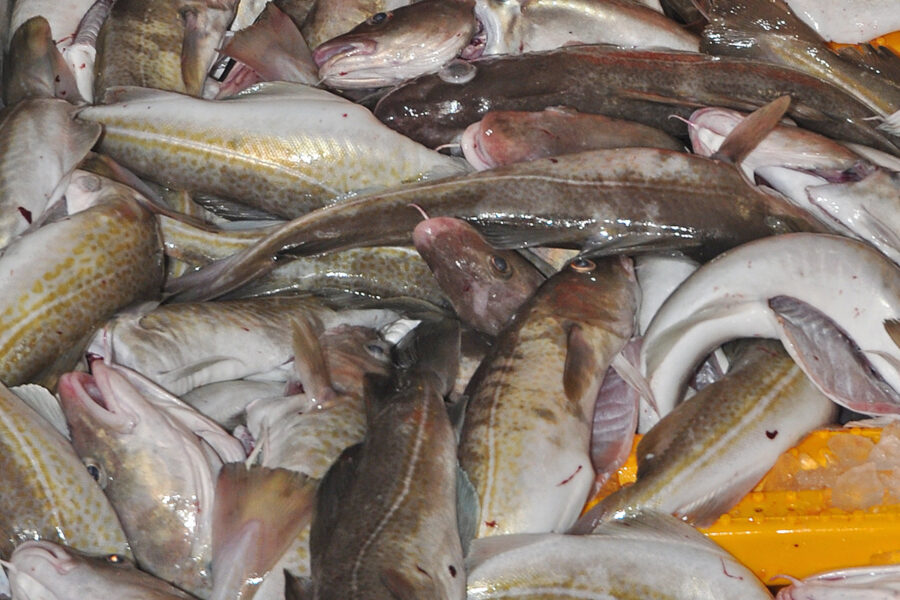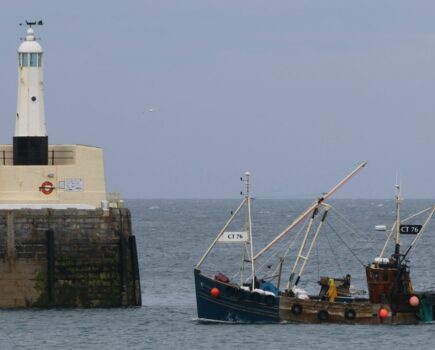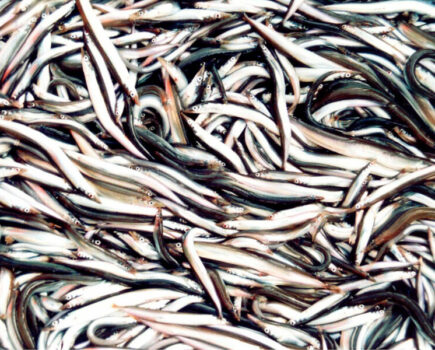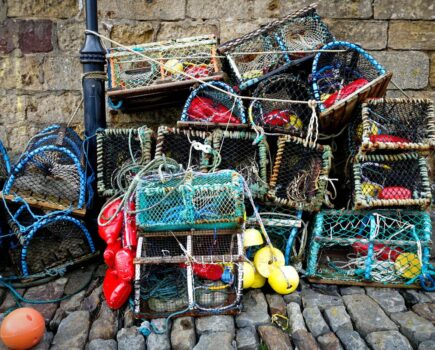There are hopes for a more realistic TAC for North Sea cod next year, after ICES agreed to hold an international workshop later this year with industry representatives to look in-depth at the stock situation and stock assessments, reports Tim Oliver.
The Northern Fishing Alliance (NFA) of industry leaders from the UK/Scotland, Norway and Denmark have been asking ICES for such a workshop for some time, pointing to a similar successful recent event looking at mackerel stocks.
The need for a fundamental examination of northern cod stocks has become acute as skippers report abundant stocks throughout northern waters, which they struggle to avoid because of quotas that are way out of line with the stocks. The TAC has been cut by 75% since 2019 to only 5,000t.
The NFA has asked for the workshop to be held in late August or early September, ahead of the start of the autumn negotiations on fishing opportunities for 2023. The venue has yet to be decided, but the NFA has offered to host and resource the event in Edinburgh.
Mike Park, chief executive of the Scottish White Fish Producers’ Association and chairman of the cod group of the NFA, said the NFA and ICES representatives would meet to discuss what the workshop would look like and its format.
Although it will primarily focus on North Sea cod, the NFA wants it to look at cod stocks more broadly, including West of Scotland cod.
In a letter to ICES, the NFA says: “It was interesting to see the focus of the mackerel workshop and the similarities between that event and the focus, as we see it, on the framing of the cod workshop.
“It is important that we use the event to assess the current situation regarding the science, modelling and outputs, but also where the industry itself sits in being a provider of data and evidence.”
It sets out what it hopes the workshop will achieve:
- Identify current knowledge deficits
- Update on the North Sea cod benchmark work
- Recommend research that will lead to future improvements of the scientific advice for North Sea cod
- Consider knowledge and data sources, and potential methods and timetables by which those methods can be incorporated into the scientific advisory process
- Identify knowledge gaps where industry can provide evidence to underpin any future modelling changes indicated by the ongoing North Sea cod benchmark
- Produce a roadmap for the delivery of future research needs for the management of fisheries on North Sea cod and mixed demersal fisheries.
“We want the workshop to assess how the industry can feed into the science data collection in terms of us carrying out similar international bottom trawl surveys to those carried out by the scientists,” Mike Park told Fishing News.
“We are being reassured that ICES has an open mind with regard to the industry getting involved.
“We’ve asked for the workshop to take place at the end of August or start of September. That way you’re ahead of the autumn negotiating season, and you’re also steering clear of some of the major meetings of the regional fisheries management organisations like NEAFC and NAFO.
“We’ve said we want to discuss the North Sea, but one partner in the coalition has come back and said we’d like to discuss wider than that in terms of area VIa (West of Scotland) cod as well, because the benchmarking of cod will be dealing with these issues, and I think everyone agrees that’s a sensible course of action, to be fair.”
An alternative would be to hold a second workshop to look more broadly at cod stocks.
The joint chairs of the workshop will be scientists Anna Rindorf of the Danish fisheries institute (DTU Aqua) and Coby Needle of Marine Scotland Science.
Commenting on calls for a mid-year review of the North Sea cod TAC, Mike Park said he believed this was unlikely ‘for such an iconic species’, despite the disparity between stocks and quotas.
“I can clearly see skippers’ frustrations, but there would be little precedent for something like that taking place mid-year,” he said.
“Next year’s science is due to come out in the next two or three weeks, and then before long you’re into the autumn negotiations where they’ll be deciding quotas for next year, so it’s very unlikely anything like that would be considered.
“But we are hearing there are hopeful signs for next year.”
This story was taken from the latest issue of Fishing News. For more up-to-date and in-depth reports on the UK and Irish commercial fishing sector, subscribe to Fishing News here or buy the latest single issue for just £3.30 here.








